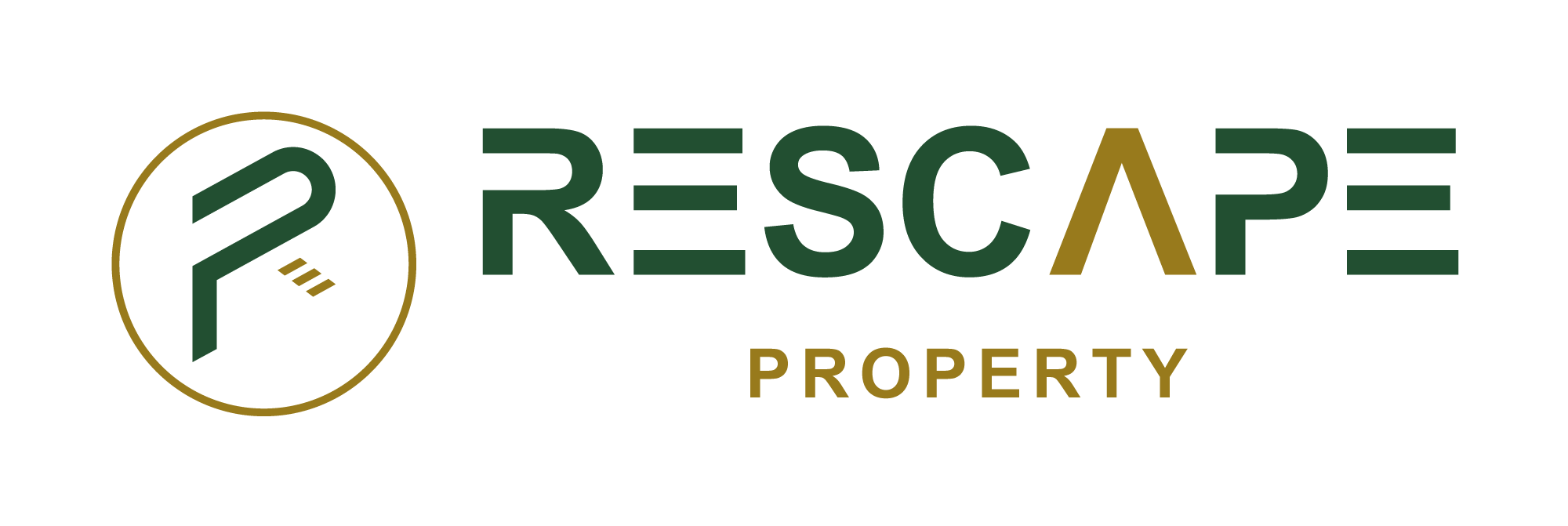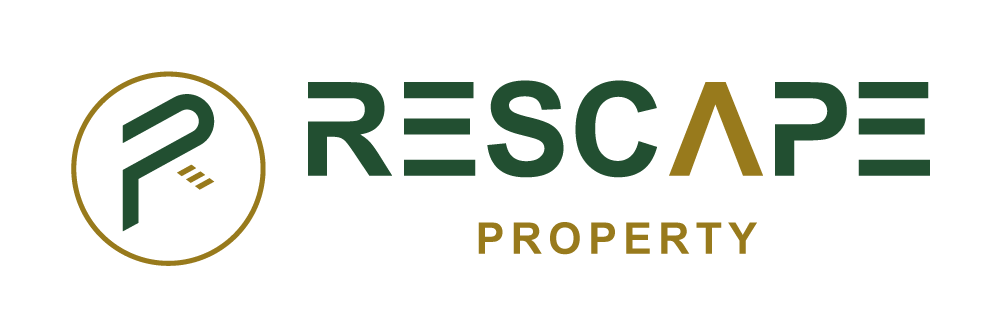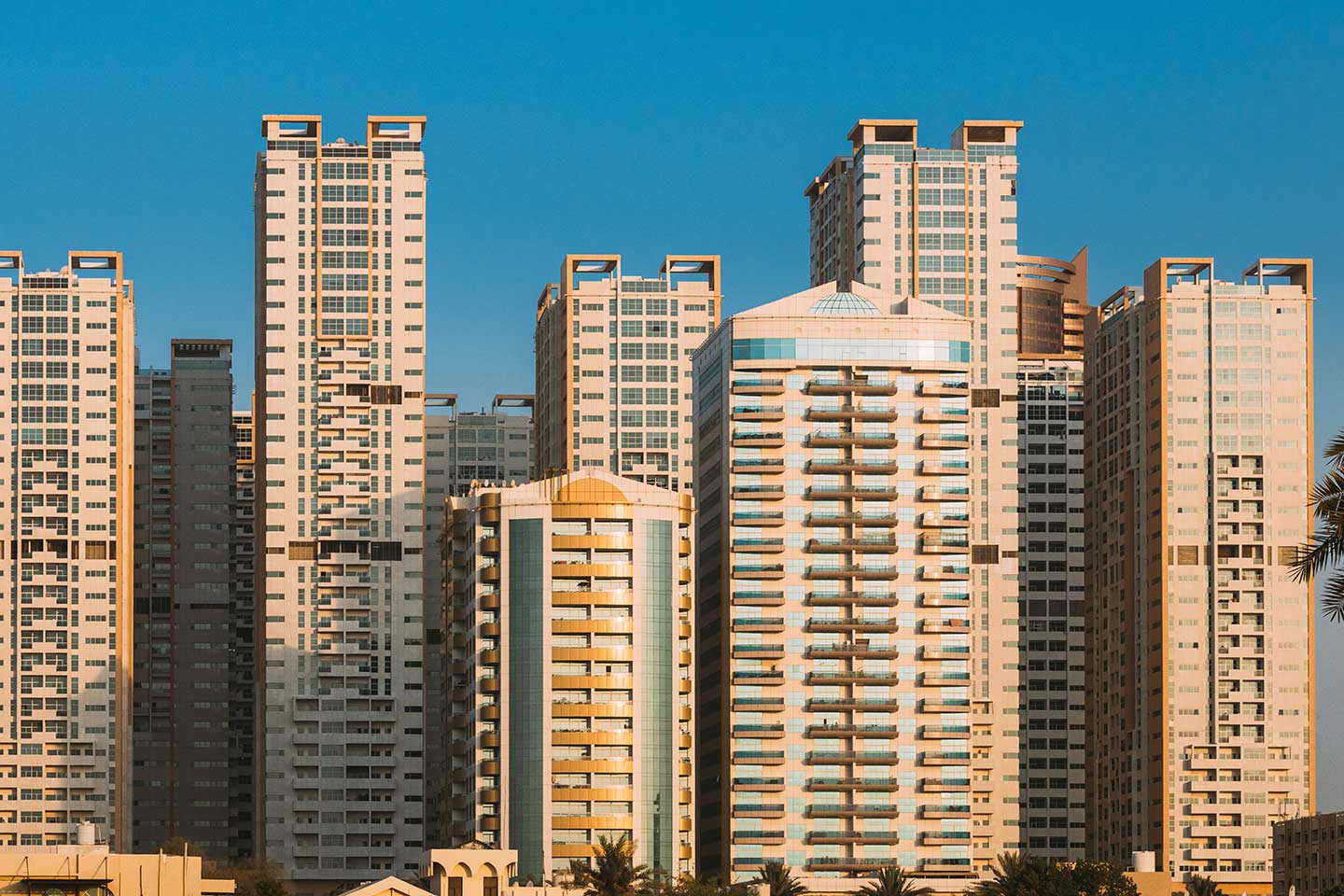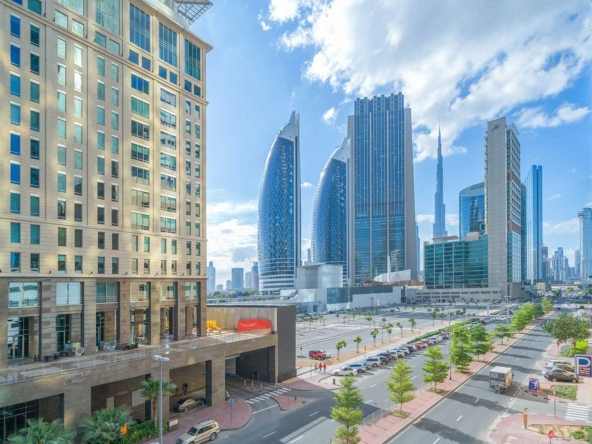Dubai has earned a global reputation as a hub for luxury living, cutting-edge architecture, and robust real estate investment opportunities. The city’s real estate market has been on a rapid growth trajectory, making it an attractive prospect for investors, homeowners, and expatriates alike. Whether you’re looking to invest, rent, or buy, understanding the nuances of Dubai’s property market is essential. Here’s your ultimate cheat sheet to navigate Dubai’s real estate landscape.
1. Understanding Dubai’s Real Estate Market Overview (2023)
In 2023, Dubai’s real estate market continued its upward momentum, driven by a combination of economic growth, population increase, and investor confidence. Sales transactions reached a record 133,134 deals, a 38% increase from the previous year. The value of these transactions soared to an all-time high of AED 411.74 billion, a 56% increase compared to 2022. Both off-plan and ready properties contributed significantly, with off-plan sales leading in volume(Dubai Props)(Property Finder).
The residential sector, in particular, had a record year with 118,200 units transacted. This represented a 29% increase in activity compared to 2022(Savills Dubai). Dubai’s diverse property market offers everything from affordable housing to ultra-luxurious villas, allowing it to cater to various segments of the market.
2. Key Areas to Consider for Investment
When looking at areas to invest or buy in Dubai, several neighborhoods stand out due to their high transaction volumes and investor interest:
- Business Bay: Known for its proximity to Downtown Dubai and vibrant commercial activity, it contributed 7.7% of the total ready-property transactions(Property Finder).
- Al Barsha South Fourth: Leading the market in off-plan sales, this area accounted for 14.4% of transactions(Property Finder).
- Palm Jumeirah: A prime location for luxury villas and apartments, Palm Jumeirah continues to attract high-net-worth individuals and investors seeking long-term gains.
3. Dubai’s Rental Market
For those looking to rent, Dubai remains an attractive option with relatively stable rental prices. In 2023, Dubai’s rental market recorded over 789,015 contracts, a year-on-year increase of 4.17%(Property Finder).
For villas, areas like Saadiyat Island (AED 600,000 annually for a five-bedroom villa) and Khalifa City (AED 170,000) offer luxury at varying price points(Property Finder). Apartment rentals in popular areas like Al Reem Island are also competitive, with prices averaging AED 60,000 for a one-bedroom apartment(Property Finder).
4. Trends Shaping Dubai’s Real Estate Market
The Dubai real estate market is constantly evolving, shaped by various factors, from government policies to global trends. In 2023, several key trends have been driving the market:
- Sustainability: Dubai’s move towards eco-friendly and sustainable living is gaining traction, supported by the Dubai 2040 Urban Master Plan. Developers are increasingly incorporating green building standards into new developments(Dubai Props).
- Affordable Housing: Dubai’s focus on affordable housing continues to grow, targeting young professionals and expatriates. This shift makes Dubai’s real estate more accessible to a wider population(Dubai Props).
- Luxury Real Estate Boom: The luxury segment continues to thrive, with a surge in demand for high-end properties. Villas and waterfront properties on Palm Jumeirah, for example, are still popular among affluent buyers(Savills Dubai).
5. Legal Considerations for Property Buyers and Renters
Understanding the legal landscape in Dubai is crucial, particularly for foreign investors and expatriates:
- Freehold vs Leasehold Properties: Dubai offers two main types of property ownership: freehold and leasehold. Freehold properties allow foreign investors to fully own the land, while leasehold properties offer long-term leases (usually 99 years). Popular freehold areas include Downtown Dubai, Dubai Marina, and Jumeirah Lake Towers.
- The Escrow Law: Introduced by Dubai’s Real Estate Regulatory Authority (RERA), this law ensures that developers deposit buyers’ funds in an escrow account, which can only be accessed when construction milestones are met, thus protecting buyers from potential fraud.
- Rental Dispute Center: Renters have the right to file grievances through the Dubai Rental Dispute Center if conflicts arise between tenants and landlords. The center provides a streamlined process for resolving disputes.
6. Financing Your Property Purchase
Dubai offers a wide range of financing options for property buyers. Mortgages are available to both UAE nationals and expatriates. Typically, expatriates can secure loans up to 75-80% of the property value, depending on their financial status and the bank’s policies.
Mortgage rates have remained competitive, with many banks offering fixed and variable interest rates. However, it’s crucial to conduct thorough research before committing to a mortgage, as rates and terms can vary significantly across banks.
7. Tax Benefits
One of the key attractions of investing in Dubai real estate is the absence of property taxes. While there are transaction fees, such as a 4% registration fee with the Dubai Land Department (DLD), investors and property owners are not required to pay annual property taxes, making Dubai a highly attractive option for international investors looking to minimize their tax liabilities.
8. Property Management and Maintenance
Owning property in Dubai also requires consideration of management and maintenance fees. Developers often charge annual service fees that cover the maintenance of communal areas, security, and amenities such as pools and gyms. These fees can vary based on the type of property and its location. High-end developments with extensive facilities naturally have higher maintenance fees compared to more basic residential units.
Many investors also opt to use property management companies to handle rental agreements, maintenance, and tenant relations, especially if they are based overseas.
9. Final Tips for Investors and Homebuyers
Before diving into the Dubai real estate market, consider the following tips:
- Market Research: Always research the areas you’re interested in, considering factors such as location, infrastructure, and property type.
- Off-Plan vs Ready Property: While off-plan properties can offer lower prices and high appreciation potential, ready properties provide immediate returns in the form of rental income.
- Long-Term vs Short-Term Investment: Determine your investment goals. Some areas, like Dubai Marina, are better for short-term rentals, while others, such as Business Bay, offer more stability for long-term investment.
- Hire Professionals: Always consult with a qualified real estate agent, legal advisor, and mortgage broker to ensure you are making informed decisions.
Conclusion
Dubai’s real estate market is poised for continued growth, making it an excellent time to invest or buy property in the city. Whether you’re attracted by the tax-free environment, the luxury real estate options, or the growing demand for affordable housing, Dubai offers something for every type of investor. Stay informed about market trends, do thorough research, and consult with experts to maximize your success in this thriving market.




